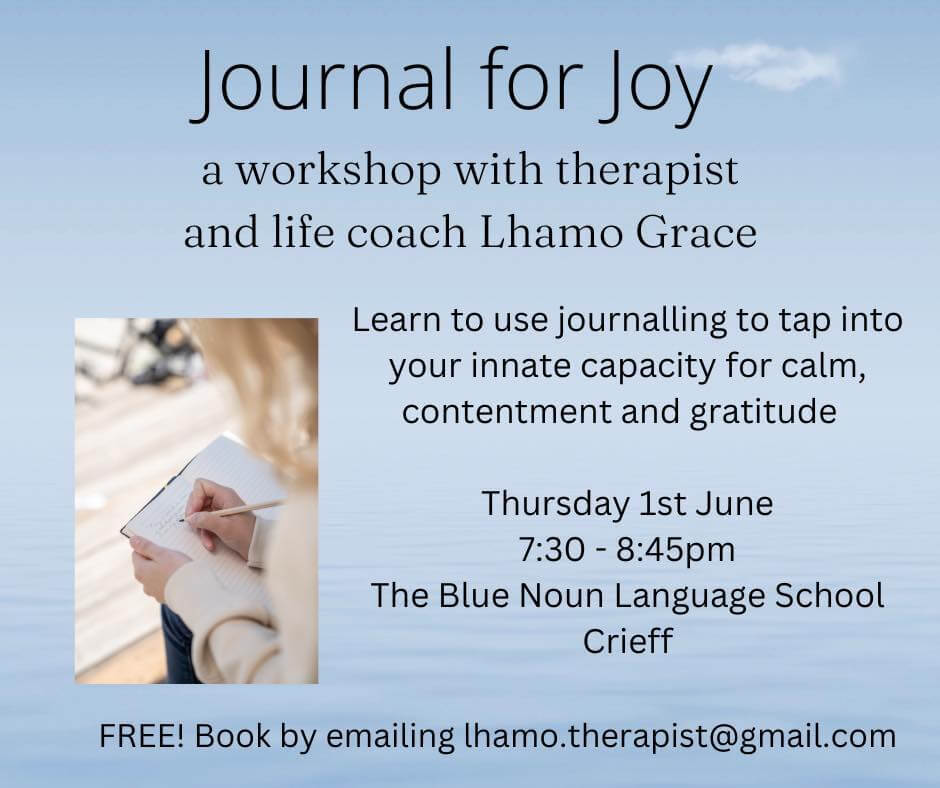Learn English with Journalling
This blog is about how important mindset is in language learning. It describes ways and tools we use to support a positive mindset in our clients, which we simultaneously build English skills on.
It gives examples of the activities we include in our immersion English holidays to create positive associations with English. It also looks at one way of improving your mindset – journalling.
Read on for tips and practice activities to help you learn English with journalling.
Mindset Matters
At this point on your English learning journey, you have likely discovered that language learning is not just memorising new structures and vocabulary. It’s also about your learning mindset.
Only your mindset can decide that you enjoy learning English.
Only you can give yourself permission to be this new version of yourself.
A good mindset will keep you coming back to English, even after an unsuccessful conversation or a disappointing result.
In fact, with the right mindset, you can even flip your ‘disappointing conversation’ into a positive one.
Look at this way, you took a risk, you tried.
Congratulations, you are now someone who speaks with strangers in English!
Mindset in English Teaching
English coaches need to be aware of their learner’s mindset, both in general and in relation to language learning.
Sensitivity to mindset is one of those non-quantifiable skills teachers have. (Have you ever had a bad teacher who lacked it?).
If you choose an immersion English holiday with me, then throughout the whole time, we work on feeling positive about English learning. I achieve this by doing really enjoyable and satisfying activities together in English.
It sounds simple and it is.
Are You Ready to Accept Simple?
Unfortunately, most people’s mindset is going to fight such simplicity.
We tend to think that only gruelling experiences are pedagogically valuable. If it’s fun, it can’t be productive.
There’s a lovely sentence in a Marian Keyes book, in which the character describes reading: If she enjoys a book too much, she feels guilt that she has been wasting her time. For her, it is ingrained that books are for improving yourself, not enjoying.
As a language learner, it’s really worth asking yourself if you carry baggage around like this. Language education has changed since you were at school. Be open to new, adult-orientated ways of learning!
One of our founding principles is the belief that visiting places of natural beauty together will help you love speaking English in the future because you learned or practised in such a calm and positive place.
Once you love speaking and being in English, successful learning follows.
Do not underestimate how much feeling good in your new language matters!

Mindfulness Journalling
For additional mindset support, we regularly invite the amazing Lhamo Grace (musician, writer, life coach, yoga teacher) to do guest sessions on our English immersion holidays.
This blog shares with you one recent workshop: Journal for Joy.
Our language school events frequently mix our local community with English learners. This workshop was not about language learning, but about strengthening mental health which supports learning.

The Link Between Mindfulness and Journalling
Mindfulness is about creating a positive relationship with our inner voice, which starts with letting it in and listening to it.
Then, we often need to permit it to be kind to us.
Journalling is a way to listen to its requests for help, rest, nature, peace and space, before an overwhelm due to the lack of these things takes over our emotions.
Journalling also builds self-compassion and self-kindness, which we need for living our best life. We also need them for language learning.
Language learning is not just cramming verbs, but showing up when it feels hard, being brave and taking risks and speaking despite feeling discomfort.
Mindfulness and Langauge Learning
Mindfulness journaling has a lot in common with our style of English teaching.
- We use prompts to get your words flowing.
- We use sketches and diagrams and tactile objects to illustrate meaning/get inspiration.
- Like journalling, there are no rules to speaking for fluency. Follow your intuition and feel free. (NB: we rehearse grammar in a different way).
- You need to trust the process and surrender yourself. It’s not about getting everything ‘right.’ It is about being, and giving yourself permission to be. (As many of us come from high-school-English backgrounds where we got marks discounted for mistakes – this fundamental mindset shift can take some time to undo).
Tips to Do It Yourself.
Learn English with Journalling.
Tip 01:
Create a Relaxed and Private Atmosphere
You likely know that we consider learning space and environment as important as your choice of English teacher(s).
That’s why we have filled our language hub with interesting objects and living plants.
(It’s why we have a hub not a school!)
Lhamo and I created an especially cosy and welcoming atmosphere for our journalling workshop with medatitive flow ‘brain music’ by brain fm, and an essential oil diffuser.
Like any Blue Noun social event, we had teas and nice snacks available, a good mix of natural light and lamp light.
Importantly, everyone was free to move around the space if they desired.

Tip 02:
Generous Stationary
If you love stationary, treat yourself!
We give all our English learners a notebook on arrival because I think it promises a good learning experience and respect for what they need to do, as a learner.
For mindset work, some people prefer the freedom of not writing somewhere so permanent, even using disposable pages.
It is quite liberating writing and then throwing away your words!
Tip #3 Limit Photography
The most important thing is for participants to relax and get into the process. Unfortunately, this limited my ability to take photos and record our workshop.
I managed this short clip just to give you an idea of how you can learn English with journalling at Blue Noun Language hub. .
#04 Ask Yourself What Your Soul Needs
As we age, we get less flexible as learners. To maximise successful language learning you need to be aware of what works for you – or even what doesn’t.
Everyone is different. We have different times of day which are effective, different routines, and different language practice sources.
Spend time listening to your inner voice guiding you through the vast landscape of language learning options.
Schedules can help, but if you need a break, take one. If you wake up excited about something you just learned, then reach for a notebook and make time to practice.

#Tip 05 Celebrate Small Wins
Often we spend enormous mental energy on what we perceive as our failures and fail to even recognise or acknowledge our successes.
This is particularly toxic for language learning as there’s an idea of ‘perfect’ or ‘fluent’ and it is an almost impossible goal.
Until you set and celebrate smaller achievements, you’ll never get to the place of being happy to speak.
Practice Exercises
Mindfulness Journalling
Think about your day today.
Write down 5 things you heard, smelled, tasted.
Then ask yourself what gives you joy.
Make a list of the things that bring you joy – and the times you have felt superbly happy. By keeping a regular record of this, you open yourself up to feeling more of it.
A simple exercise is to write down 3 happy moments in your day before you sleep.
Language Tip:
If you are not feeling fluent yet, it is better to do this in your own language, and then discuss your list in English, rather than letting a lack of vocabulary interfere with this stream-of-consciousness process.
Further Information
Blue Noun Language Hub
Get our tips for Language Learning with Essential Oils.
External Links
More about Brain Fm (and how their music affects your mental state).

